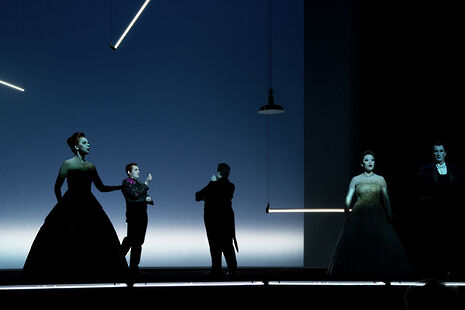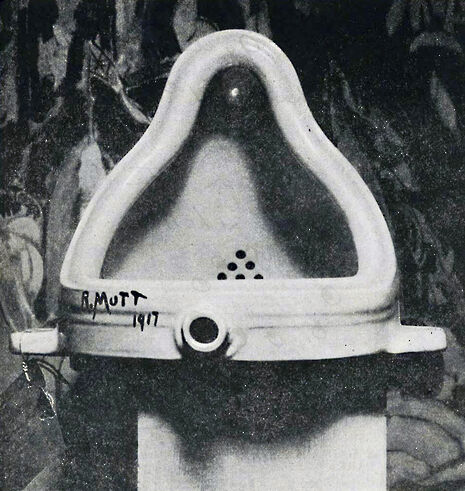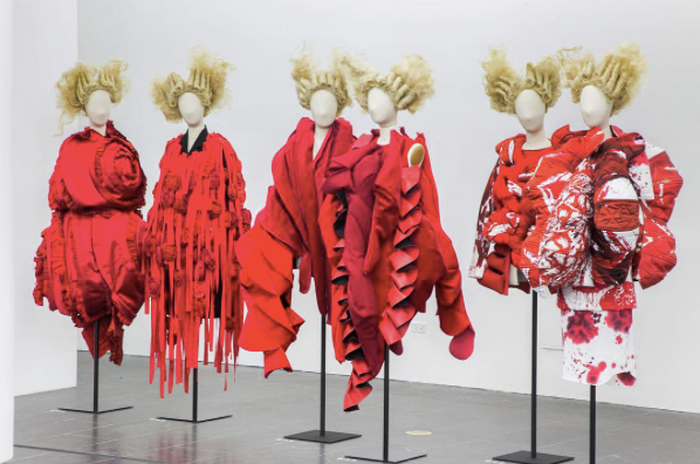Discovering Cambridge’s art: avant garde
Can the avant garde be a thing of the past? Tom Stell discusses the influence of earlier experimental art on his work

If you want to make the art of the future, there is a serious difficulty. The future is by definition void. To create, we have to have things to look at, things to inspire us, and those can only be found in the past. It is a grave error to confuse a small subset of the past, the last ten years, even the last ten months, with the future – though it is perhaps this error that leads so many would-be avant-gardists to expose themselves only to art of their own generation.
The Surrealists knew this and, not concerning themselves directly with the idea of progress – something at once elusive and trivial – drew up a genealogy of their movement which ran back through artists such as De Sade and Baudelaire. Their leader Breton would haunt the museum of the 19th century painter Moreau and declared the latter’s contemporary Böcklin his favourite artist. If we want to be avant-garde, we have to have past artists to show us how to be.
This is especially true at a time where the self-confidence of art – the bombast of Dada, Surrealism, the Situationist International, Fluxus – seems to have faltered. The avant-garde may itself be becoming a thing of the past.
Of course I have my own influences. I have discovered them slowly, one by one, each enlightening a different aspect of my art, and each discovery having the extreme, irrational excitement of a sexual experience.

Perhaps it began with Robert Wilson, an American stage director of cold, stylised pieces, unfolding to the rhythm of a dream logic, actors in white make-up luminous as petrified ghosts. Finding his work I realised there was someone who had wanted to do something similar in the theatre to me, and, as with any such realisation, one feels a little less lonely after making it. Here was another for whom the theatre escaped rational, social concerns and took hold of the mind as a religious ritual.
There followed the discovery of William Burroughs, the beat-generation writer best known for Naked Lunch. In his collage-texts of dreams, satire pushed to its limit, and evocations of total dislocation and melancholia, I found the creation of an experience just as all-consuming as with Wilson. For both, too, there was a distrust of the word, at any rate the word as simple token of reasoned argument, where it lacks the magical power of the hieroglyph.
Under the influence of these two and others too numerous to mention, I evolved a way of directing plays, and a way of writing. In the theatre I create highly formal, anti-realistic work, where everything is aestheticised: all movement as a kind of dance, all speech as a kind of song. This draws on my training in noh and Chinese opera. In writing I work on highly polished prose fragments, often on historical or metaphysical themes, something I have learned to do from Borges’ short parables, and on longer work often based on dreams I have had and walks I have been on – the experience of a landscape, recounting the associations it has for me, and trying to hold in my mind the history and the geology of the place.
In writing as in the theatre I have very old influences as well as modern ones. I wouldn’t write the way I do if it wasn’t for the Pyramid Texts, Cranmer’s translations of the Psalms, and Sir Thomas Browne, and juxtaposition in itself fascinates me. I have staged Baroque opera with steampunk costumes, and given ancient Assyria a heavy metal soundtrack. There may be intellectual justifications for these, but that’s not the point. Some combinations just work, and that is what I explore in my scrapbooks and journals, the root of my work.
It is these two things – a fascination with the past, and the ambition, the raw desire to be avant-garde, which is a kind of rage – which I believe we lack in Cambridge. I would welcome a bit more erudition, as well as more resistance to learning, to realism, to reason and morals, to universities, a bit more rage and a bit more love.
 Interviews / Lord Leggatt on becoming a Supreme Court Justice21 January 2026
Interviews / Lord Leggatt on becoming a Supreme Court Justice21 January 2026 Features / Are you more yourself at Cambridge or away from it? 27 January 2026
Features / Are you more yourself at Cambridge or away from it? 27 January 2026 News / Reform candidate retracts claim of being Cambridge alum 26 January 2026
News / Reform candidate retracts claim of being Cambridge alum 26 January 2026 News / Report suggests Cambridge the hardest place to get a first in the country23 January 2026
News / Report suggests Cambridge the hardest place to get a first in the country23 January 2026 News / Cambridge psychologist to co-lead study on the impact of social media on adolescent mental health26 January 2026
News / Cambridge psychologist to co-lead study on the impact of social media on adolescent mental health26 January 2026










